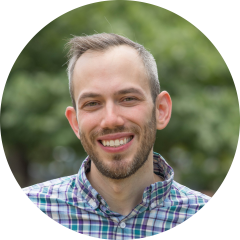This post is cross posted to the URJ KESHER Blog, where I’m also a contributor. They’ve got good stuff there, too.
Leonard Cohen – prolific songwriter, singer, musician, poet, novelist, and philosopher – is a music hero. He’s been inducted into the Rock and Roll Hall of Fame, the Canadian Music Hall of Fame, and the Canadian Songwriters Hall of Fame. He is also a Companion of the Order of Canada – our country’s highest civilian honour. These aren’t mere platitudes bestowed without good reason: his career spans six decades and is unwaveringly progressing; Lou Reed, front-man of The Velvet Underground, has labeled Cohen as being amongst “the highest and most influential echelon of songwriters.” Not bad for an observant Jew from the Montreal suburbs.
In the interest of full disclosure, I admittedly love his music, but what has impresses me most about Cohen is his desire to infuse his connection to Judaism in all that he creates. For him, Judaism isn’t just one sphere of many in his life, it is a ubiquitous reality. Listen to his music, read his poems, or watch him on stage, and it is clear that a Jewish stream flows through all he does. In his music and poetry, Cohen has incorporated Machzor liturgy, Torah ethics, and Tanakh stories (think the opening verse of “Hallelujah”). He also observes Shabbat, even while on tour. Impressive.
And yet, there are those who would accuse him of reneging against his Judaism. You see, Leonard Cohen also embraces a Zen-oriented lifestyle which – for some – is sufficient grounds to expunge him from the Jewish people. Heavy.
In his 2006 “Book of Longing,” Cohen responds to these accusations with poetic eloquence:
Anyone who says
I’m not a Jew
is not a Jew
I’m very sorry
but this is final.
The pen is mightier, indeed.
It seems to me that Leonard Cohen offers a pretty good model of pluralistic Judaism. His argument that a monolithic interpretation of Judaism is inherently antithetical to what Judaism is about is almost Talmudic in its essence. It bears a close resemblance to the oft quoted passage “shiv’im panim laTorah,” that “there are seventy faces to the Torah” (B’midbar Rabbah 13:15). Many Jews could learn from Cohen.
It also seems to me that this man would fit in well at Jewish camp – a place where Judaism isn’t just one sphere of life; isn’t just an item from 10:00-11:00 on the schedule; isn’t confined to the sanctuary or the library. Judaism at our camps is effervescent. Certainly, it manifests itself in different individual ways – music, sports, programming, environmentalism, prayer, and yes, Torah study – but it is most definitely akin to the life Cohen leads: omnipresent and profound.
At our camps, we embrace the notion that there is no monolithic definition of Judaism, or what it means to live a Jewish life. We know that the beauty of Judaism is that every Jew has the ability to find a different, unique face of the Torah and see it in their own way, even while we are all learning and living from the same Book. If Cohen went to a URJ Camp, nobody would tell him he’s not a Jew. Here, we embrace the journey that is Judaism.
So go find some of Leonard’s music or writings, and spend some time with them. Truly, there is a Jewish journey within his art.
